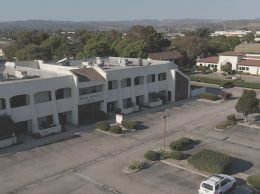Defense furloughs ripple across region’s bases
IN THIS ARTICLE
- Top Stories Topic
- Stephen Nellis Author
By Stephen Nellis Friday, July 19th, 2013
More than 6,100 civilian Department of Defense employees in the Tri-Counties have started taking one-day-a-week unpaid furloughs between now and the end of September.
But economic experts expect the immediate impact to be minimal. Any deep effects on the regional economy aren’t likely to emerge unless and until families begin to feel their net worth is imperiled by years of persistent cuts — a question that remains in the hands of a deadlocked Congress.
The furloughs are perhaps the most visible sign of the failure of the so-called budget super committee. The group could not reach a deficit-reduction deal, triggering across the board cuts to federal spending that included a 9.8 percent annual cut to the defense budget, for a total of $1.2 trillion over 10 years.
The military is the largest employer in the region, with 26,390 employees between Naval Base Ventura County and Vandenberg Air Force Base in Santa Barbara County. Active duty personnel aren’t affected, but civilian employees are.
Vance Vasquez, deputy public affairs officer Naval Base Ventura County, said more than 5,000 employees will be taking unpaid time off there.
“The fleet Family Support Center has held six classes at Hueneme for civilians to help them deal with the furlough and let them know what options they have,” Vasquez said. “There was a proactive movement on behalf of the base to provide information to the affected employees.”
Robin Jackson, the public affairs chief for the 30th Space Wing at Vandenberg, said 1,137 employees are affected there, though there are also other units housed on the base that could experience furloughs among civilian employees.
Defense contractors are also feeling the pinch, even if indirectly. Ralph Phillips, president and CEO of Channel Technologies Group, which makes sonar systems for the U.S. Navy and a range of other defense electronics, said his firm deals directly with the government on some contracts and indirectly through prime contractors on others. He said the sequester is already being felt. “It tends to slow things down,” Phillips said. “You can’t pinpoint any one contract that has gone away for us, but it has slowed down the process, especially with the furloughs.”
Bill Watkins, an economist with California Lutheran University in Thousand Oaks, said that the region’s restaurants and auto dealers probably have little to fear from this year’s furloughs because of a concept called consumption smoothing. Consumers tend to make purchasing decisions based on their permanent expected income and use savings or borrowing to adjust to shocks they know are temporary.
“You spend out of your wealth, not your cash flow,” Watkins said. “A 20 percent cut for 11 weeks doesn’t really affect your wealth. They might cut back a little but, but I wouldn’t expect much. I doubt we’ll see it in the data.”
But Bill Buratto, CEO of the Ventura County Economic Development Association, said that those families could adjust downward if it becomes clear that furloughs will reduce their incomes over the next decade that sequestration is scheduled to take place. “Clearly, families experiencing furloughs will have income reduced. How that translates and manifests itself in the local economy will be hard to judge,” Buratto said in an email. “The longer term issue is whether Congress decides to do anything with sequestration for the remaining nine years. If it stays in place I think we can expect furloughs to continue in subsequent years as well as some reduction in force.”
Watkins said the bigger political factor is uncertainty about how Congress will address the country’s fiscal future, a cloud that hangs over the entire national economy. In particular, he said the government has yet to resolve the question of how it will finance the growth of entitlement programs for social insurance and health care.
“I think this is part of a bigger battle that is going to be persistent,” Watkins said. “There will always be a tension between transfer payments and the other services the government provides.”












